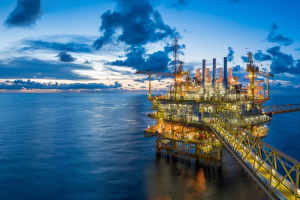Medco Energi to use US$ 370 million Capex for Natuna block development
PT Medco Energi Internasional Tbk (MEDC) has allocated US$ 370 million Capital expenditure (Capex) in 2023 through its subsidiary for the development of its business portfolio in the oil and gas and power plants.
Founded in 1980, Medco Energi is a company based on exploration, production of oil and gas and onshore and offshore drilling. The company has a number of subsidiaries including:
- Medco Indonesia Holdings BV. (with 100% ownership)
- Medco Straits Services Pte Ltd. (100%)
- PT Medco Energi Natuna Timur (100%)
- PT Medco LNG Indonesia (100%)
- PT Medco Power Generation Indonesia (100%)
- PT Medco Power Internasional (100%)
Medco Energi continues its project at Natuna
Through its subsidiary, Medco will distribute Capex for the needs of several programs and the continuation of the project in Natuna block.
"This year, our investment in oil and gas has increased to over US$250 million and the power (plants) has also increased. We are spending around US$110 million for the [power plant] project. [The total of our projects] is around US$ 370 million,” said Medco CEO Ronald Gunawan on January 9, 2023, as quoted by bisnis.com.
In 2023, Medco will continue the Senoro phase 2 progress in the Natuna block which includes to maintain level 3 safety culture maturity in E&P and power and fully integrated Corridor Medco organization.
"The Senoro project is a joint operation with [state-owned oil and gas firm] Pertamina. We mentioned earlier, there is the Sumbawa LNG Regasification Terminal which is being built now," said Gunawan.
Medco reported that its oil and gas production reached 161 Mboepd (Milion barrel oil of equivalent per day) in the third quarter of 2022, a 73% increase compared to the same period last year. Based on the company's financial report on the Indonesia Stock Exchange, as of September 2022, Medco recorded revenues of US$ 1.80 billion, up 89.11% from the same period in 2022 of US$ 955.92 million.
Risks in oil and gas industry
There are 3 problems in the oil and gas sector such as:
- Climate change concerns: The use of fossil fuels is a major contributor to greenhouse gas emissions, which are the primary cause of climate change. As a result, the sector is facing increasing pressure to reduce its carbon footprint and transition to more sustainable energy sources.
- Resource depletion: Oil and gas reserves are finite resources. The industry is facing the challenge of finding and extracting new sources of oil and gas to replace declining reserves. This can lead to increased costs and risks associated with exploration and production.
- Regulatory problems: There are regulatory aspects that become obstacles, especially in the upstream oil and gas sector. These regulations are related to legal uncertainty, fiscal and administrative processes, or complicated licensing bureaucracy.
Tag
Already have an account? Sign In
-
Start reading
Freemium
-
Monthly Subscription
30% OFF$26.03
$37.19/MonthCancel anytime
This offer is open to all new subscribers!
Subscribe now -
Yearly Subscription
33% OFF$228.13
$340.5/YearCancel anytime
This offer is open to all new subscribers!
Subscribe now






